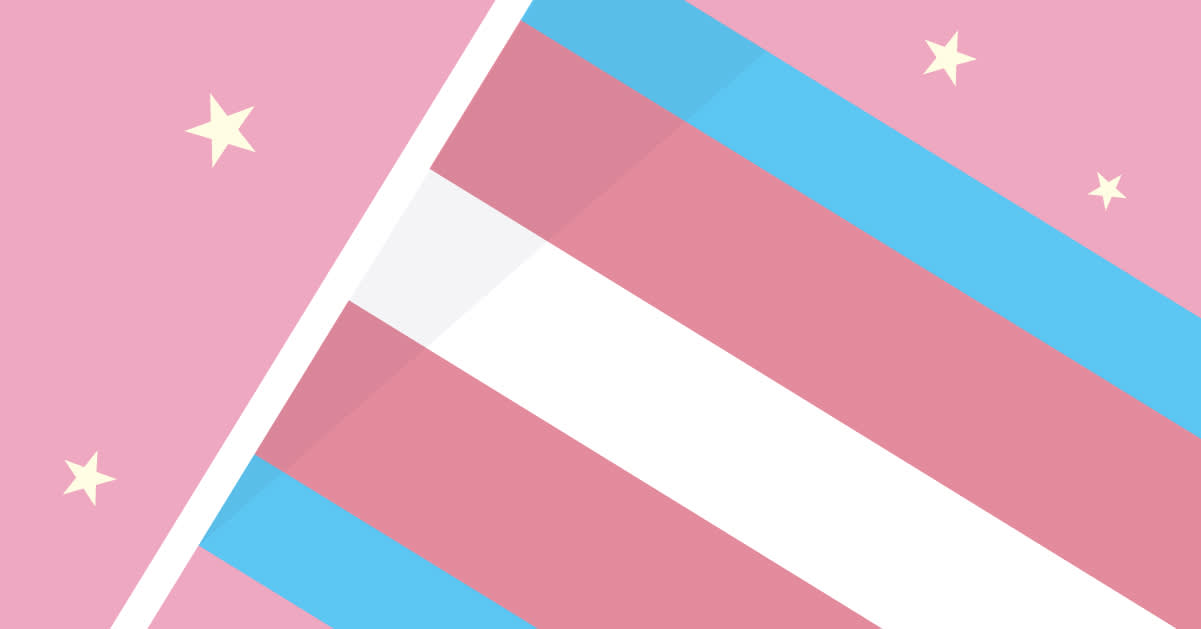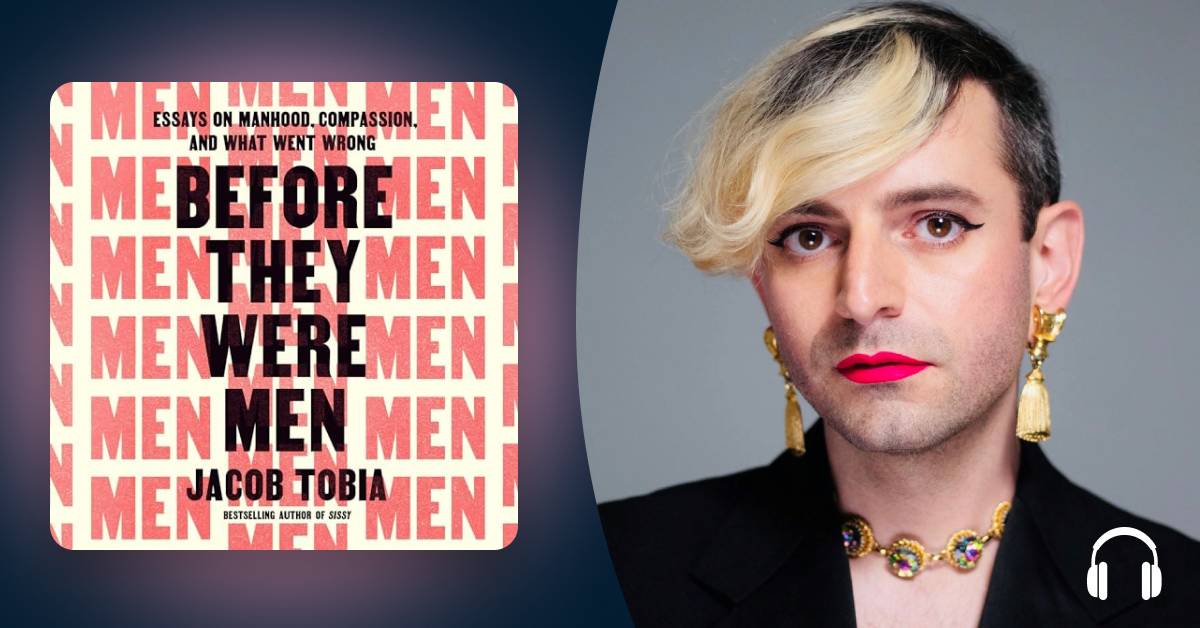Sim Butler’s debut memoir, And the Dragons Do Come, is a moving look at fatherhood, acceptance, and unconditional love in a world that routinely wants to deny the rights of trans individuals. By sharing his own family’s experiences with transphobia, Butler, who is a researcher and teacher by profession, also reminds us that we all have the ability—and the responsibility—to advocate for one another. Because everyone deserves the right to exist, feel safe, and in the case of children, to just be a kid.
Michael Collina: Though this book is focused on your own family’s experiences in Alabama, anti-trans sentiment, legislation, and hate has been spreading across the country. What is one thing you hope listeners take away or learn from your family’s story?
Sim Butler: The take-away of this book is that transgender people can be from anywhere, and they need to be safe everywhere. This logic applies to all kids, whether they are trans or not, but the stakes are raised for kids who face stigmatization. So how did we, as a society, conclude that we are okay with only some kids being safe? It happens when we are afraid of people we don’t have a connection with. I hope this book helps bridge that gap.
What made now the right time to share your family’s experiences with the world? Was there a specific moment that you knew you had to turn your experiences into a book?
I think we all have the ability to advocate in spaces big and small. When my daughter was younger, my wife and I were comfortable advocating in tight, personal spaces, like with family, friends, and church. But as my daughter grew, the spaces in which she should be able to operate, like schools, the legal system, youth sports, and health care, grew as well, and our advocacy had to flex proportionally. We found that as her world was expanding, her rights were shrinking. At that point, I realized that I couldn’t just advocate for my daughter quietly, because her world overlapped with so many other LGBTQIA+ kids trying to grow up right now in America. I had to do something publicly and loudly and in a way that other people might be able to join me, and the book grew from that need.
Experiencing transphobia is horrific and unfair at any age, but it feels particularly brutal when it involves children. What was it like navigating so much vitriol in your own community?
As a parent, watching transphobia unfold around us was crushing. I think adults default to a “because I said so” type of reasoning with children. We assume our life experiences are more valid than those of a child because we have more, which is illogical. But what crushes my soul is not an illogical approach to trans children but the regular lack of empathy for these children and others like them. I hear stories of trusted adults telling kids, “I love you but I don’t think this is real” and “I love you but I do not accept that you are trans.”
"'I love you but…' is not, nor has it ever been, the love a child needs."
When adults couch their acceptance with conditions, they are making it clear that protecting their own comfort is more important than protecting the child. “I love you but…” is not, nor has it ever been, the love a child needs. And when adults think that children can be loved conditionally, those children and others like them can easily be ostracized and demonized. The kids that need love the most are getting the least of it.
Why did you choose And the Dragons Do Come as the title?
For me, the dragon represents the unpredictable, almost insurmountable obstacles that can suddenly appear in your life. Dragons are mythical, foreign, and not an everyday threat. But if one were to ever arrive at your doorstep, the damage it could cause would be nothing compared to the helplessness you’d feel facing it. I believe many people face dragons in their lives, because dragons represent a supreme struggle against an unforeseen and unimaginable challenge. This could be addiction, abuse, war, or anxiety; everyone’s dragon is different.
When our family was wrestling with questions like “How do we fight the government for the rights of our child? Do we leave our home to find a safer place?” and “How do we convince people that there’s nothing to fear from trans kids?” we had our own manifestation of that fear and helplessness. The image of a dragon encompasses both the danger and the overwhelming sense of dread that I was feeling, because I was not sure we were ready. As parents, everyone tries to raise their kids to be strong and resilient enough to face down whatever dragons they may eventually face in their lives. Some may never have to face a dragon. But for trans kids, the dragons do come, both early and often.
Are there any audiobooks, podcasts, or resources that you found helpful in your own life, parenting a trans child?
I’m a researcher and teacher by profession, so I’m heavily influenced by academic research work about narratives and gender identity. But audiobooks are the place I find my stories, both fiction and nonfiction, that resonate. On the fiction side, Mad Honey by Jodi Picoult and Jennifer Finney Boylan was a wonderful read. In nonfiction, Nico Lang’s American Teenager: How Trans Kids Are Surviving Hate and Finding Joy in a Turbulent Era was excellent. Lang does a wonderful job of capturing the voices of hope and struggle of trans kids in America.
After sharing your own family’s experience protecting your daughter from transphobia, is there anything else you’d like to share with other trans folks and their families?
I have often felt isolated by my family’s struggles and hopes, because they are not the same struggles my friends had. I think that we as humans define ourselves both by what makes us different from others and by what makes us the same, and what we do with those similarities and differences becomes the linchpin for our cultures, societies, and governments. When I remind myself that being stigmatized, ostracized, and dehumanized does not happen only to trans folks, then I feel less isolated and alone.
"When I conceptualize stigmatization as a uniting commonality among many groups of people, I feel like we have the numbers to swing the cultural pendulum back toward justice."
Instead, I can work to use what we face as a unifying similarity from which many people can draw power. Dr. Martin Luther King Jr. famously said, “Injustice anywhere is a threat to justice everywhere,” and I believe he was talking about recognizing the interconnectivity of struggles as a collective, not individual, experience. When I conceptualize stigmatization as a uniting commonality among many groups of people, I feel like we have the numbers to swing the cultural pendulum back toward justice. When we recognize that so many people face similar circumstances, the otherization has less power. The rate of people who are forced to face down dragons, big and small, is so much higher than it needs to be. The lesson it took me so long to learn is that we don’t beat dragons alone, we beat them together.




